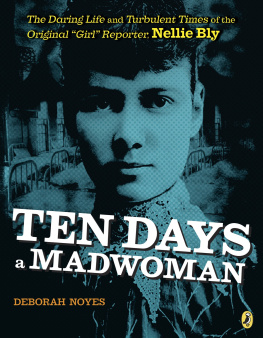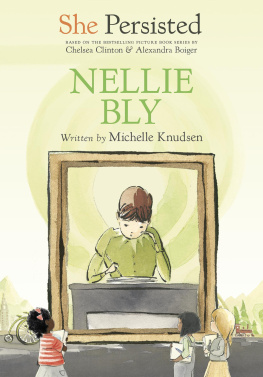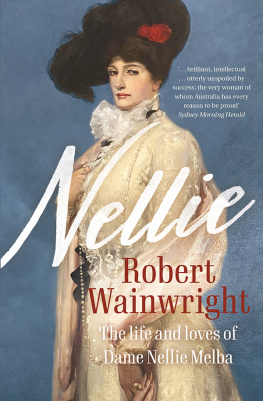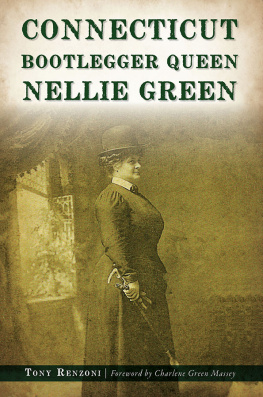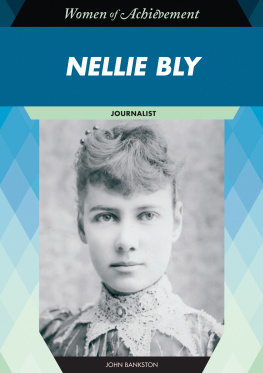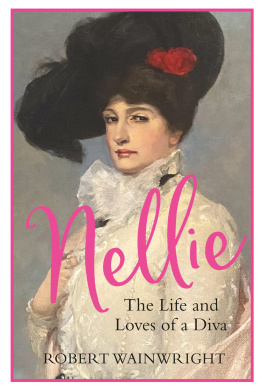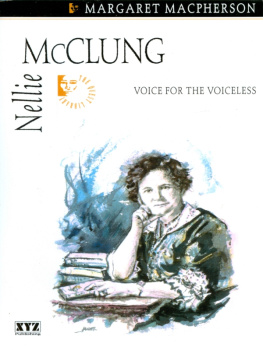Nellie Lillian McClung - In Times Like These
Here you can read online Nellie Lillian McClung - In Times Like These full text of the book (entire story) in english for free. Download pdf and epub, get meaning, cover and reviews about this ebook. City: Kanada;Toronto, year: 1976;1972, publisher: University of Toronto Press, genre: Science. Description of the work, (preface) as well as reviews are available. Best literature library LitArk.com created for fans of good reading and offers a wide selection of genres:
Romance novel
Science fiction
Adventure
Detective
Science
History
Home and family
Prose
Art
Politics
Computer
Non-fiction
Religion
Business
Children
Humor
Choose a favorite category and find really read worthwhile books. Enjoy immersion in the world of imagination, feel the emotions of the characters or learn something new for yourself, make an fascinating discovery.

- Book:In Times Like These
- Author:
- Publisher:University of Toronto Press
- Genre:
- Year:1976;1972
- City:Kanada;Toronto
- Rating:5 / 5
- Favourites:Add to favourites
- Your mark:
- 100
- 1
- 2
- 3
- 4
- 5
In Times Like These: summary, description and annotation
We offer to read an annotation, description, summary or preface (depends on what the author of the book "In Times Like These" wrote himself). If you haven't found the necessary information about the book — write in the comments, we will try to find it.
Nellie McClungs fourth book, In Times Like These, written in 1915, survives as a classic formulation of a feminist position. With hard-hitting rhetoric it demands womens rights as a logical extension of traditional views of female moral superiority and maternal responsibility.
In Times Like These — read online for free the complete book (whole text) full work
Below is the text of the book, divided by pages. System saving the place of the last page read, allows you to conveniently read the book "In Times Like These" online for free, without having to search again every time where you left off. Put a bookmark, and you can go to the page where you finished reading at any time.
Font size:
Interval:
Bookmark:
In times like these
NELLIE L. McCLUNG
WITH AN INTRODUCTION BY VERONICA STRONG-BOAG

www.utppublishing.com
University of Toronto Press 1972
Toronto Buffalo London
All rights reserved
Reprinted 1974, 1976, 1980, 1983, 1989, 1992, 1994
ISBN 978-0-8020-6125-6 (paper)
Reprinted 2005

Canadian Cataloguing in Publication Data
McClung, Nellie L., 18731951
In times like these
Includes bibliographical references.
ISBN 978-0-8020-6125-6 (pbk.)
1. Women History. 2. Women Social conditions.
3. Women Canada. 4. Women Conduct of life.
I. Title.
HQ1221.M2 1972 305.40971 C72-4561
The photograph of Nellie McClung on the cover is courtesy of the Glenbow- Alberta Institute, Calgary, Alberta.
This book has been published with the assistance of a grant from the Canada Council.
The original edition of this work was published in the United States in 1915 by D. Appleton and Company and was distributed in Canada by McLeod & Allen.
BY VERONICA STRONG-BOAG
WINDY NELLIE, Calamity Nell, Mrs Western Canada, Our Nellie, or, more simply, Nellie Letitia McClung personified Canadian feminism for the first quarter of the twentieth century. Her personality and career made her one of the most controversial of Canadians. As a campaigner whose slogan was Never retract, never explain, never apologize get the thing done and let them howl, she became the foremost practitioner of the politics of sexual confrontation.
Nellie McClung was an activist: a prominent campaigner in the successful drives for female suffrage in Manitoba and Alberta, a nationally known feminist and social reformer, the only woman at the Canadian War Conference of 1918, an MLA in Alberta, and the first woman to represent Canadian Methodism at a World Ecumenical Conference. In 1936 she became the first woman member of the Canadian Broadcasting Corporations Board of Governors and in 1938 a Canadian delegate to the League of Nations. Sixteen books and numerous articles made her one of Canadas best-known authors. Working with press clubs and the Canadian Authors Association, she was a strong exponent of cultural nationalism. Today, her fourth book, In Times like These, survives as a classic formulation of the feminist position. As a Canadian, a feminist, and a reformer, McClung reveals much of the intellectual ferment of her time.
Nellie McClung was born Nellie Letitia Mooney in 1873 in Grey County, Ontario, and in 1880 with her family joined the great rush to Manitobas wheatfields. During her lifetime Canada was undergoing major change: the nation was confused by suddenly overwhelming problems, both in burgeoning cities and in rural areas rushed uncertainly into the age of commercialized farming. The combination of large numbers of non-Anglo-Saxon immigrants and rural emigration, of industrial slums and rural hardship, of rising expectations and increasingly suspect business practices engendered explosive instability. Regional protest, particularly the wests resentment at eastern business domination, heightened the tension. Feminism grew in the midst of this social ferment, a vital part of Canadian societys attempt to deal with the newly posed social questions. The feminism of Nellie McClung and others must be understood as a special facet of nation-wide unrest.
The reform community was closely interrelated. The same individuals or their close associates promoted a great variety of change. Their crusades temperance, urban renewal, social welfare, female suffrage were undertaken while the Social Gospel of the Protestant churches was prompting the entire society to self-examination. Winnipeg was a centre of reform agitation. Nellie McClung worked with J. S. Woodsworth in that citys All Peoples Mission. Her service with Methodisms welfare-conscious Epworth League further exemplified the commitment to positivism, efficiency, and morality which characterized so many of the Canadian progressives. If Canadian feminisms view of what women could do appeared over-optimistic, it was because of the suffragists links with a semi-evangelical nation-wide crusade to purge Canadian society of its immoralities and make it a beacon to the rest of the world.
Little has been written about the female contribution to the Canadian progressive movement. Great numbers of women participated in every variety of reform activity. The Canadian community was almost unanimous in its attribution of a higher morality to its women folk. Believing this, women could quite legitimately claim a strong affinity for reform. McClung, like other Canadian women, viewed motherhood as a sacred trust: Women must be made to feel their responsibilities. All this protective love, this instinctive mother love, must be organized in some way, and made effective. There was enough of it in the world to do away with all the evils which war upon childhood, undernourishment, slum conditions, child labor, drunkenness. Women could abolish all these if they wanted to.
The mothering ideal was central to McClungs feminism. As traditionally as any of her opponents she regarded motherhood as the highest achievement of her sex. She believed that every normal woman desires children. In Times like These contains no radical reinterpretation of the feminine personality. Instead, McClungs demand for womens rights is presented as a logical extension of traditional views of female moral superiority and maternal responsibility. Women must at last emerge from the home and use their special talents to serve and save the race. In emphasizing this particular characterization of women, McClung wrote within a familiar belief pattern, acceptable to both conservatives and liberals.
The suffragists rejected the Pauline doctrine of feminine inferiority. As women they made a long overdue claim on the liberal heritage of human perfectibility. Their campaign was justified at two philosophical levels. One was egalitarian, the demand for rights natural to all human beings. The other was essentially inegalitarian, based on presumptions of feminine superiority: only women had the spiritual and moral resources to reform society. This distinction was never fully clarified, and suffragist arguments fluctuated erratically between the two philosophical poles, the confusion hidden for the short term by the overriding goal of enfranchisement.
Dr Emily Howard Stowe founded the first Canadian womens suffrage organization, the Toronto Womens Literary Club, in 1876. Not until 1883 were its members confident enough to stand revealed as the Toronto Womens Suffrage Association. By organizing parades and study groups, by flooding the Ontario legislature with feminist petitions, this experiment established the pattern for other provincial campaigns. The formation of national organizations followed: the Dominion Womens Enfranchisement Association in 1889 (later the Canadian Suffrage Association), and the National Union of Woman Suffrage Societies of Canada in 1914. With encouragement from Ontario, campaigns were organized in the west beginning about 1912. By then suffragists had the powerful support of the major farm groups in Alberta, Saskatchewan, and Manitoba: prairie feminism developed in the most sympathetic of Canadian communities. The west coast crusade began in the 1880s and proceeded very slowly through a long series of petitions and marches. Reflecting the narrow regionalism of their community, British Columbias feminists did little of the missionary work which characterized their Ontario counterparts. The Atlantic coast was still more conservative. Although the Womans Christian Temperance Union (WCTU) of New Brunswick was very active in the suffrage cause, Maritimers were generally indifferent. Suffrage came slowly and with little publicity. In Quebec paternalism and traditionalism staged a last-ditch stand, preventing enfranchisement until 1940. Before the First World War Ottawa usually avoided the entire issue by pleading provincial jurisdiction. John A. Macdonalds abortive concessions in the 1884 franchise bill were repeated in other years, but it was not until the Wartime Elections Act of 1917 that there was sufficient support to pass even a limited national measure.
Next pageFont size:
Interval:
Bookmark:
Similar books «In Times Like These»
Look at similar books to In Times Like These. We have selected literature similar in name and meaning in the hope of providing readers with more options to find new, interesting, not yet read works.
Discussion, reviews of the book In Times Like These and just readers' own opinions. Leave your comments, write what you think about the work, its meaning or the main characters. Specify what exactly you liked and what you didn't like, and why you think so.

